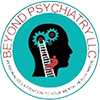Depression is a common and serious mental health disorder that affects how you feel, think, and handle daily activities. It can lead to a variety of emotional and physical problems and can decrease a person’s ability to function at work and at home.
Depression


DEPRESSION THERAPY
Causes and Risk Factors
The exact cause of depression is not known, but a combination of genetic, biological, environmental, and psychological factors likely play a role. Common risk factors include:
THERAPY PROCESS
Depression is treatable, and a combination of the following approaches is often most effective:
- Psychotherapy:
- Cognitive Behavioral Therapy (CBT): Focuses on changing negative thought patterns.
- Interpersonal Therapy (IPT): Focuses on improving personal relationships and communication.
- Psychodynamic Therapy: Aims to uncover and work through underlying psychological issues.
- Medications:
- Antidepressants: Such as SSRIs, SNRIs, MAOIs, and tricyclic antidepressants.
- Mood Stabilizers or Antipsychotics: Sometimes used in conjunction with antidepressants.
- Lifestyle and Home Remedies:
- Exercise: Regular physical activity can help reduce symptoms of depression.
- Diet: A healthy diet can support overall mental health.
- Sleep: Maintaining a regular sleep schedule is crucial.
- Stress Reduction: Techniques like mindfulness, meditation, and yoga can be beneficial.
- Other Therapies:
- Electroconvulsive Therapy (ECT): For severe depression that doesn’t respond to other treatments.
- Transcranial Magnetic Stimulation (TMS): A non-invasive procedure that uses magnetic fields to stimulate nerve cells in the brain.
